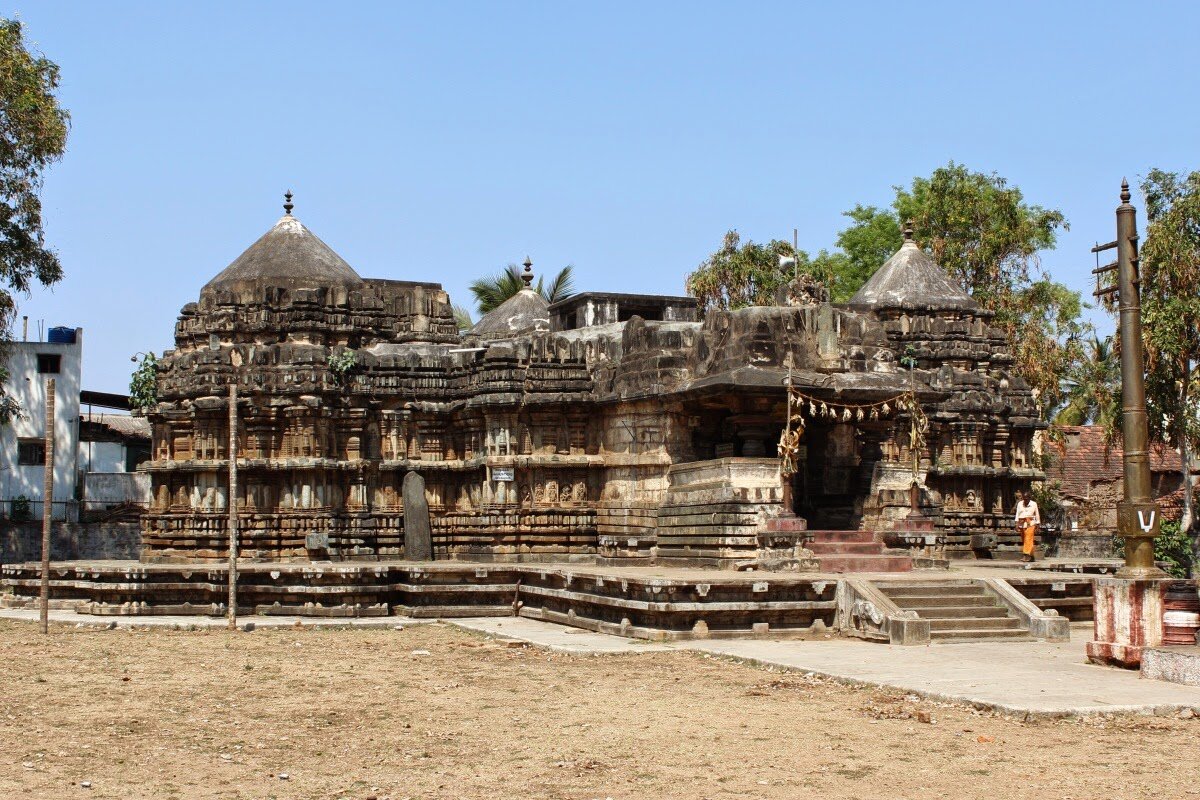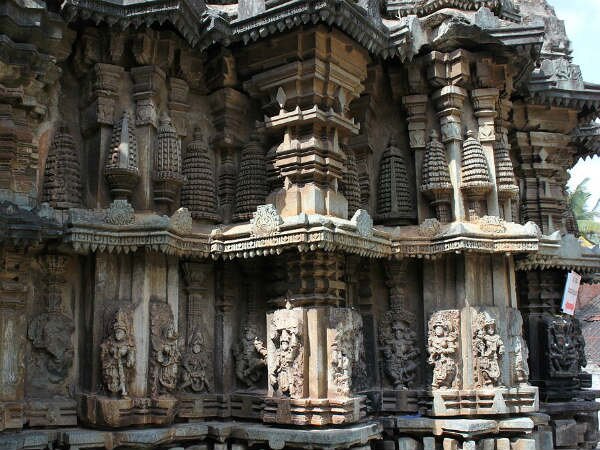Indian Heritage & Culture
Lakshmi Narasimha Temple: Hoysala Architecture
- 30 Oct 2019
- 3 min read
The 13th century Lakshmi Narasimha temple in Bhadravati of Shivamogga district, Karnataka is being renovated.
About Lakshmi Narsimha Temple
- The temple was built during Hoysala rule in the early 13th century.
- It is built in ‘Trikuta’ style, that is, having three shrines- dedicated to Lakshmi Narasimha, Venugopalaswamy and Purushothama.
- The outer walls of the temple bear great detailed carvings in Hoysala style.
- The concrete flooring on the platform, also called jagati, is used by devotees as pradakshina path (ambulatory passageway for circumambulation).
About Hoysala Architecture
- Hoysala architecture is the building style developed under the rule of the Hoysala Empire between the 11th and 14th centuries, mostly concentrated in southern Karnataka.
- Hoysala temples are sometimes called hybrid or vesara as their unique style seems neither completely Dravida nor Nagara, but somewhere in between.
- The Hoysala temples, instead of consisting of a simple inner chamber with its pillared hall, contain multiple shrines grouped around a central pillared hall and laid out in the shape of an intricately-designed star.
- The most characteristic feature of these temples is that they grow extremely complex with so many projecting angles emerging from the previously straightforward square temple, that the plan of these temples starts looking like a star, and is thus known as a stellate-plan.
- Since they are made out of soapstone which is a relatively soft stone, the artists were able to carve their sculptures intricately. This can be seen particularly in the jewellery of the gods that adorn their temple walls.
- They are easily distinguishable from other medieval temples by their highly original star-like ground-plans and a profusion of decorative carvings.
- Some of the famous temples are: Hoysaleshvara temple (Lord of the Hoysalas) at Halebid in Karnataka that was built in dark schist stone by the Hoysala king in 1150, Chennakeshava temple in Somnathpura, Karnataka built around AD 1268 under Narasimha III, Kesava temple at Belur in Hassan district of Karnataka built by Vishnuvardhana.






